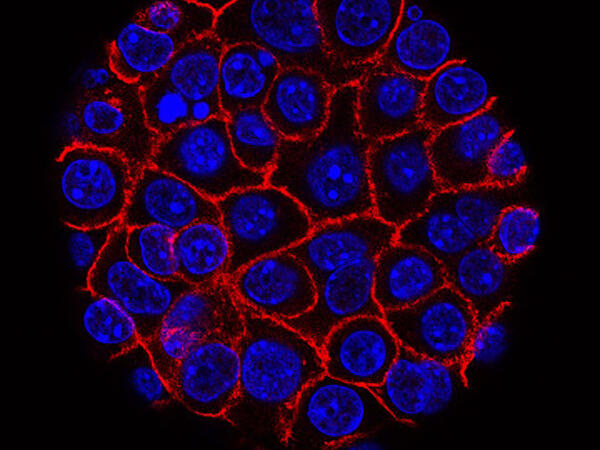A new study published in Scientific Reports has identified a novel therapeutic target for pancreatic ductal adenocarcinoma (PDAC), a type of pancreatic cancer. PDAC cells have an increased demand for nutrients, including amino acids, which are essential for their growth and proliferation.
The study focused on a specific amino acid transporter called SLC38A5, which plays a crucial role in transporting amino acids such as glutamine, asparagine, methionine, glycine, and serine. This transporter is responsible for transferring amino acid substrates along with sodium ions, coupled with the transfer of hydrogen ions in the opposite direction.
Previous research has shown a connection between SLC38A5 and cancer, but the current study aimed to investigate its role in PDAC specifically. The researchers discovered that SLC38A5 helps prevent intracellular acidification by removing hydrogen ions from cancer cells, which is important as cancer cells produce a significant amount of lactic acid. They also observed an increase in micropinocytosis, a process that aids in nutrient scavenging, particularly for glutamine, which is essential for PDAC growth.
The study demonstrated that SLC38A5 is critical for the proliferation and growth of PDAC. Knocking out SLC38A5 attenuated the growth of PDAC cells and led to a significant reduction in various amino acids. Interestingly, glycine and glutamine remained upregulated, indicating that they are still important for PDAC even without SLC38A5. Additionally, the study found that SLC38A5 recognizes other amino acids such as cysteine, alanine, isoleucine, valine, threonine, proline, and phenylalanine as substrates.
Furthermore, the knockout of SLC38A5 inhibited the mTORC1 signaling pathway, which is known to promote cancer growth. The study also revealed that SLC38A5 deletion decreased the expression of other amino acid transporters and led to a significant metabolic crisis in PDAC cells, affecting processes such as mitochondrial respiration and glycolysis.
The findings of this study indicate that SLC38A5 is overexpressed in PDAC and its overexpression is associated with poor survival in PDAC patients. By targeting SLC38A5, it may be possible to develop novel treatments for PDAC. Inhibiting SLC38A5 could disrupt the supply of essential amino acids to cancer cells, leading to their growth inhibition and potentially improving patient outcomes.
Overall, this research highlights the potential of SLC38A5 as a therapeutic target for PDAC. Further studies and clinical trials are needed to fully understand the benefits and feasibility of targeting this transporter in the development of novel treatments for pancreatic cancer.
*Note:
- Source: Coherent Market Insights, Public sources, Desk research
- We have leveraged AI tools to mine information and compile it



